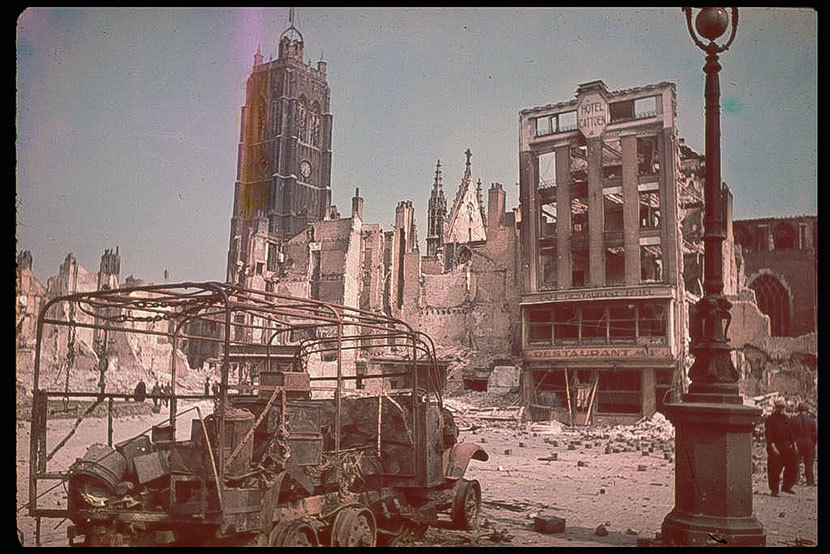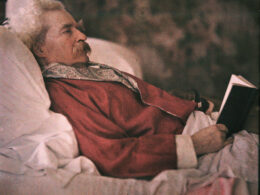John Fisher
From Reporting World War II: American Journalism 1938–1944

The “miracle” of the Battle of Dunkirk occurred eighty years ago this week.
The battle itself was an unmitigated disaster, of course: the linchpin event of the invasion of France, resulting in an overwhelming victory for the Third Reich and the creation of the Vichy government. The miracle was the eleventh-hour evacuation of more than 300,000 soldiers, both British and French, across the Channel to the shores of England in a scrambled-together flotilla of 800 boats.
The U.S. entry into World War II was still eighteen months in the future, so numerous American members of the press remained in Berlin, reporting the German advance under the careful watch and encouragement of the Wehrmacht command. In early June Life magazine correspondent John Fisher and other foreign journalists were comfortably transported to the front in a convoy of Mercedes Benz automobiles. They arrived in Dunkirk on June 4, just hours after the remaining troops surrendered, and saw for themselves the wreckage of the city of Dunkirk, where more the 90% of the buildings had been destroyed.
“Hardly were the Swastika banners hoisted,” William Shirer reported the next day in his radio broadcast from Berlin, “when the German people were given word that a new offensive on the Western Front had started.” The army’s next stop: Paris.
Fisher’s account of his trip to Dunkirk was published in Life later in the month, and we present it as our Story of the Week selection.



